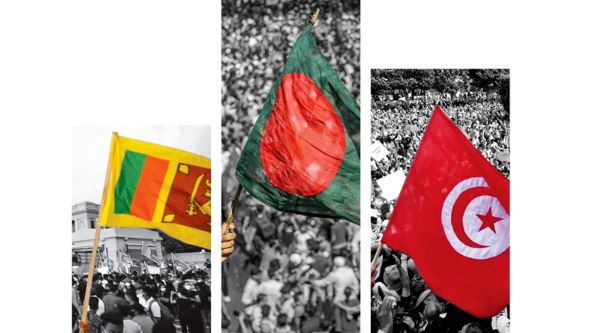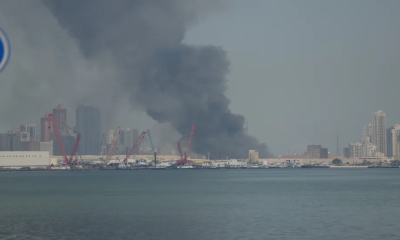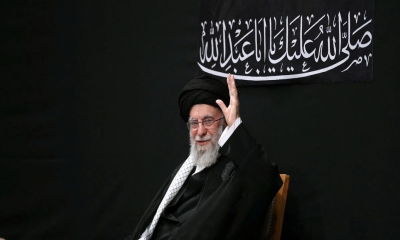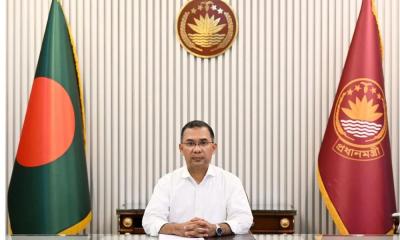As the year 2024 draws to a close, Bangladesh finds itself at a major turning point. The government of the Awami League, which had been in power for more than 15 years, has collapsed following an unexpected uprising.
This shift in power has sparked new hopes for the country’s future, but the economy has yet to show signs of real improvement.
A special report by The Bonik Barta, titled "Is Bangladesh Following the Path of Tunisia, Not Sri Lanka?" takes a closer look at the current situation.
It compares the political and economic paths of Bangladesh, Tunisia, and Sri Lanka, pointing out similarities and differences in how each country has handled crises.
Tunisia’s revolution in 2011, which overthrew President Zine El Abidine Ben Ali, was a turning point for the country.
Similarly, in Sri Lanka, the government of Gotabaya Rajapaksa fell in 2022 after massive protests. In both cases, the leaders fled the country following mass uprisings.
Bangladesh’s recent crisis mirrors these events. On August 5, following a student-led protest, Sheikh Hasina, who had ruled the country for over a decade, fled to India.
Despite the similar paths of these three countries, the outcomes have been different.
Tunisia’s post-revolution journey has been marked by ongoing instability, while Sri Lanka has recovered remarkably well, managing to bring down inflation and stabilize its economy within two years.
In Bangladesh, however, the situation remains uncertain, and the economy has not shown any significant recovery.
After the interim government took charge on August 8, it has been five months with little progress.
The law and order situation remains troubling, with over 1,360 murders and 255 abductions reported since the uprising.
Political tension is high, with the two main opposition parties—BNP and Jamaat-e-Islami—accusing each other of corruption.
Recently, a fire broke out in a key government building, raising concerns about the country`s security.
The economic situation is also concerning.
Foreign investment is down, with no foreign companies bidding on gas exploration contracts after the change in government.
Foreign loan commitments have dropped by 91% in the first five months of the fiscal year, and the amount of foreign loans disbursed was less than the amount spent on debt repayment.
The private sector is shrinking, and the economy is still struggling.
Looking back at Sri Lanka, things were much worse during the fall of Gotabaya Rajapaksa`s government.
In 2022, Sri Lanka’s inflation rate was nearly 67%, and the country had declared bankruptcy.
However, in just two years, Sri Lanka has managed to stabilize.
Inflation dropped to negative 2.10% in November, and foreign reserves have increased to around $6.5 billion. Politically, the country is also more stable, with a recent election showing support for the left-wing National People’s Power (NPP) coalition.
In contrast, Tunisia’s post-revolution experience has been a lot more difficult. While the Jasmine Revolution of 2011 overthrew President Ben Ali, Tunisia has struggled with political instability and economic decline.
Despite having four changes of government since Ben Ali’s fall, the country has faced high inflation, unemployment, and weak reserves.
Many young Tunisians, who led the revolution, have even left the country in search of better opportunities.
Five months after Bangladesh’s uprising, there is still no clear recovery in sight.
Instead, many are beginning to fear that the country might be heading down the same path as Tunisia, with prolonged instability.
Mahmudur Rahman Manna, president of the Nagarik Oikya, shared his thoughts in an interview with The Bonik Barta.
He said, “It hasn’t even been five months since the interim government took charge. It is too early to say whether Bangladesh will recover as quickly as Sri Lanka or take a long time like Tunisia. But in the last five months, there hasn’t been much to be optimistic about. However, we should not be entirely pessimistic either.”
Manna continued, “We have to admit that the interim government is quite weak. It has very little experience in political matters. The students have selected the chief advisor and the advisory council, and they are intervening in various issues. The government needs to engage in more dialogues with the stakeholders to maintain national unity and address the points of conflict.”
The people of Bangladesh have struggled with high inflation for three years, and despite the country’s economic growth over the past 15 years, it hasn’t created enough jobs.
This has caused frustration among the youth, who have been demanding better opportunities.
Rampant corruption and mismanagement have also deepened inequality, with many sectors—especially banking and energy—suffering.
These issues played a big part in the uprising, but even after the change in government, they remain unresolved.
Dr. Samina Lutfar, an associate professor in the Department of Sociology at Dhaka University, explained the situation to The Bonik Barta: “At this point, Bangladesh is grappling with the consequences of the war, compounded by the corruption of the Awami fascist regime. Due to their corruption, huge amounts of money have been siphoned off to foreign countries. Given these two factors, the government should have taken stronger action, but we haven’t seen that in the last five months. Furthermore, they have failed to control inflation, address the fire incidents, or rehabilitate the victims of the July uprising. As a result, there is a growing sense of distrust in the government, which is dangerous.”
She added, “In addition, the anti-inequality student movement is trying to emerge as a political force, and some political parties, driven by their electoral ambitions, are racing to see who can seize power more quickly. This has created a political crisis. The political force needed to consolidate the independence we have gained is absent in the current government. But I am still hopeful. If they can show the right path in the August declaration, then it will be good. But with various interests now at play, the unity that was once present seems to be gone, which makes it harder to achieve the revolutionary goal of establishing an egalitarian Bangladesh.”
The challenges Bangladesh faces now are reminiscent of those in Tunisia after its revolution.
After Ben Ali’s departure, Tunisia’s government collapsed, and protests erupted almost daily.
The interim government formed by Prime Minister Mohamed Ghannouchi was not accepted, leading to his resignation.
A new interim government was formed under Said Essebsi, but it failed to gain public trust. In 2011, Tunisia elected an Islamist government, but by 2013, protests had again forced it to step down.
Since then, the country has had multiple changes in leadership, but it has still struggled to achieve stability.
Tunisia’s political crisis reached a peak in 2021 when President Kais Saied dismissed ministers, suspended parliament, and took control of the country, calling it a constitutional coup.
Despite being re-elected in 2021, Tunisia’s political and economic situation remains unstable, with high inflation, food shortages, and unemployment.
Dr. Fahmida Khatun, an economist and executive director of the Center for Policy Dialogue (CPD), believes that Bangladesh’s interim government has yet to offer any clear solutions.
She told The Bonik Barta, “The main task of the interim government was to reduce inflation and bring relief to the general population. But they have not succeeded in that. The purchasing power of the lower and middle classes has severely diminished. While interest rates have been raised to control inflation, the results have not been forthcoming. The issue lies in supply-side problems. The government needs to fix the supply chain and end extortion and improve law and order.”
Khatun continued, “The current economic and political crises are a legacy of the past. Various issues, such as the dollar shortage, depleting reserves, high inflation, the investment drought, revenue deficits, the burden of government debt, the suffering banking sector, and corruption, are interconnected. These factors have become deeply rooted in the economic system, and they all contribute to the crisis. In light of these issues, the country’s new government will need to prioritize a number of reforms if it is to recover from this crisis.”













-20260304091720.webp)






-20260303080739.webp)








-20260225072312.webp)





-20260228064648.jpg)
